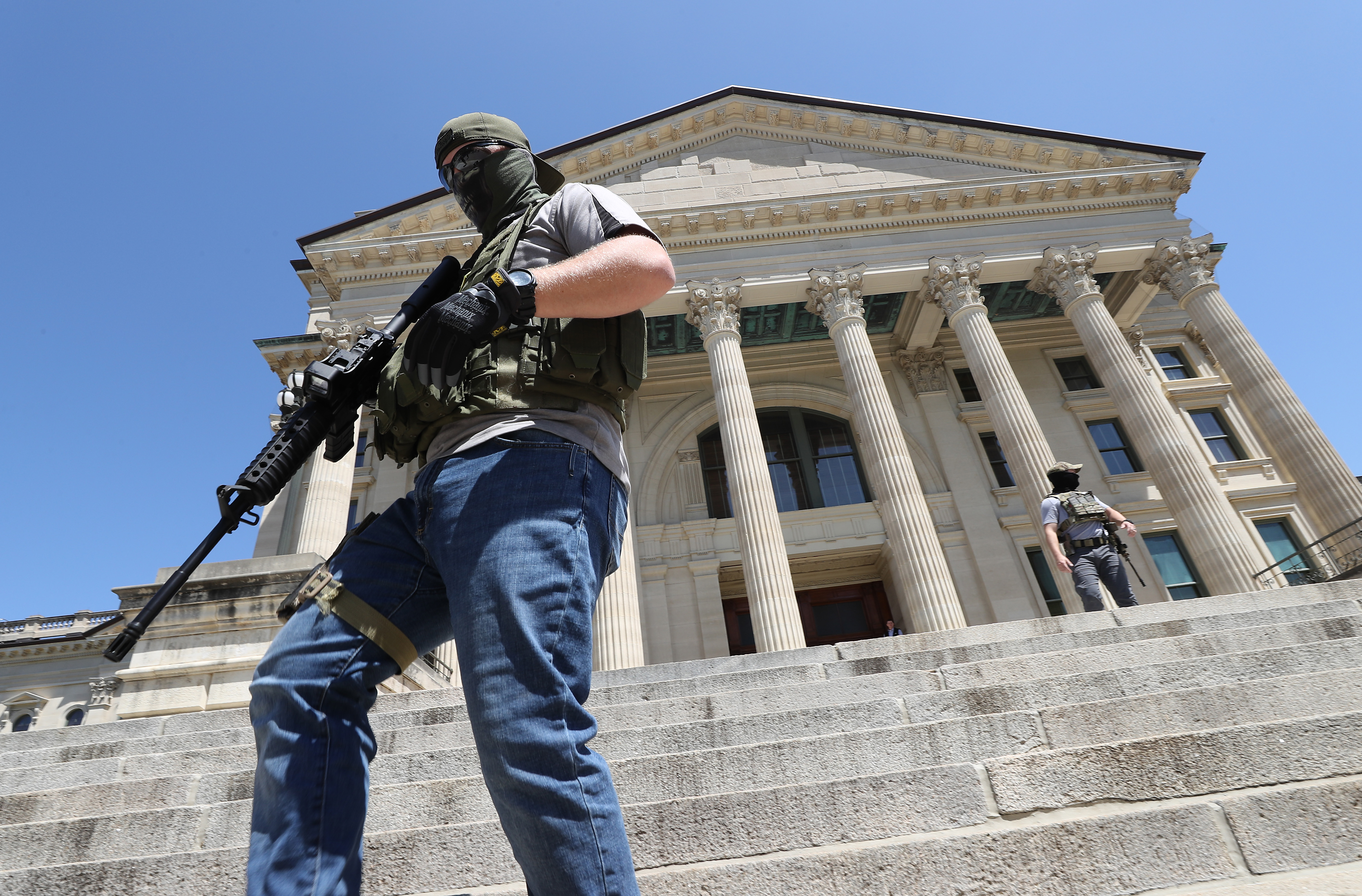Rebelling against sanity
Defying sound health advice on COVID-19 won't save the economy


A free daily email with the biggest news stories of the day – and the best features from TheWeek.com
You are now subscribed
Your newsletter sign-up was successful
This is the editor's letter in the current issue of The Week magazine.
Our country was born in rebellion against authority, so it's no surprise Americans have always had a strong libertarian streak. We bristle at being told what to do, especially by the government — even when it's demonstrably in the public interest. Millions of Americans angrily objected when health officials and the government began warning that cigarettes could kill them, and banned indoor smoking, and required motorists to wear — ugh — seat belts. Such bondage! Each of these impositions on personal freedom saved immeasurable suffering and many, many lives. Government can also overreach, of course; finding the right balance between individual liberty and the common good is a perpetual struggle. Now, in the midst of a catastrophic pandemic, it is masks, social distancing, and the closures of public places and businesses that have provoked cries of nanny-state tyranny from such diverse voices as a Dallas beauty salon owner and Elon Musk.
Infectious diseases, however, have a strong anti-libertarian bias. Without knowing it, a single infected person sheds billions of viruses and can spread illness and death to anyone standing near him or even sharing the same enclosed space. And if COVID-19 lands that free spirit in the hospital, the cost of a typical, 20-day hospitalization is $30,000 and up, which all of us pay through higher insurance premiums and taxes. The freedom to ignore the virus isn't free. Several countries have used strict closures, testing, contact tracing, and masking not only to flatten their curves — but also to crush them. Taiwan (population 24 million) has had just 440 cases and seven deaths. Densely populated Hong Kong has had just four deaths. The U.S. may be stumbling into the worst of all worlds: repeated waves of infection into 2021 and a devastated economy paralyzed by ongoing, legitimate fear. This is not a good time to act like a 5-year-old shouting: "You're not the boss of me!"
The Week
Escape your echo chamber. Get the facts behind the news, plus analysis from multiple perspectives.

Sign up for The Week's Free Newsletters
From our morning news briefing to a weekly Good News Newsletter, get the best of The Week delivered directly to your inbox.
From our morning news briefing to a weekly Good News Newsletter, get the best of The Week delivered directly to your inbox.
A free daily email with the biggest news stories of the day – and the best features from TheWeek.com
William Falk is editor-in-chief of The Week, and has held that role since the magazine's first issue in 2001. He has previously been a reporter, columnist, and editor at the Gannett Westchester Newspapers and at Newsday, where he was part of two reporting teams that won Pulitzer Prizes.
-
 How the FCC’s ‘equal time’ rule works
How the FCC’s ‘equal time’ rule worksIn the Spotlight The law is at the heart of the Colbert-CBS conflict
-
 What is the endgame in the DHS shutdown?
What is the endgame in the DHS shutdown?Today’s Big Question Democrats want to rein in ICE’s immigration crackdown
-
 ‘Poor time management isn’t just an inconvenience’
‘Poor time management isn’t just an inconvenience’Instant Opinion Opinion, comment and editorials of the day
-
 Epstein files topple law CEO, roil UK government
Epstein files topple law CEO, roil UK governmentSpeed Read Peter Mandelson, Britain’s former ambassador to the US, is caught up in the scandal
-
 Iran and US prepare to meet after skirmishes
Iran and US prepare to meet after skirmishesSpeed Read The incident comes amid heightened tensions in the Middle East
-
 Israel retrieves final hostage’s body from Gaza
Israel retrieves final hostage’s body from GazaSpeed Read The 24-year-old police officer was killed during the initial Hamas attack
-
 China’s Xi targets top general in growing purge
China’s Xi targets top general in growing purgeSpeed Read Zhang Youxia is being investigated over ‘grave violations’ of the law
-
 Panama and Canada are negotiating over a crucial copper mine
Panama and Canada are negotiating over a crucial copper mineIn the Spotlight Panama is set to make a final decision on the mine this summer
-
 Why Greenland’s natural resources are nearly impossible to mine
Why Greenland’s natural resources are nearly impossible to mineThe Explainer The country’s natural landscape makes the task extremely difficult
-
 Iran cuts internet as protests escalate
Iran cuts internet as protests escalateSpeed Reada Government buildings across the country have been set on fire
-
 US nabs ‘shadow’ tanker claimed by Russia
US nabs ‘shadow’ tanker claimed by RussiaSpeed Read The ship was one of two vessels seized by the US military
